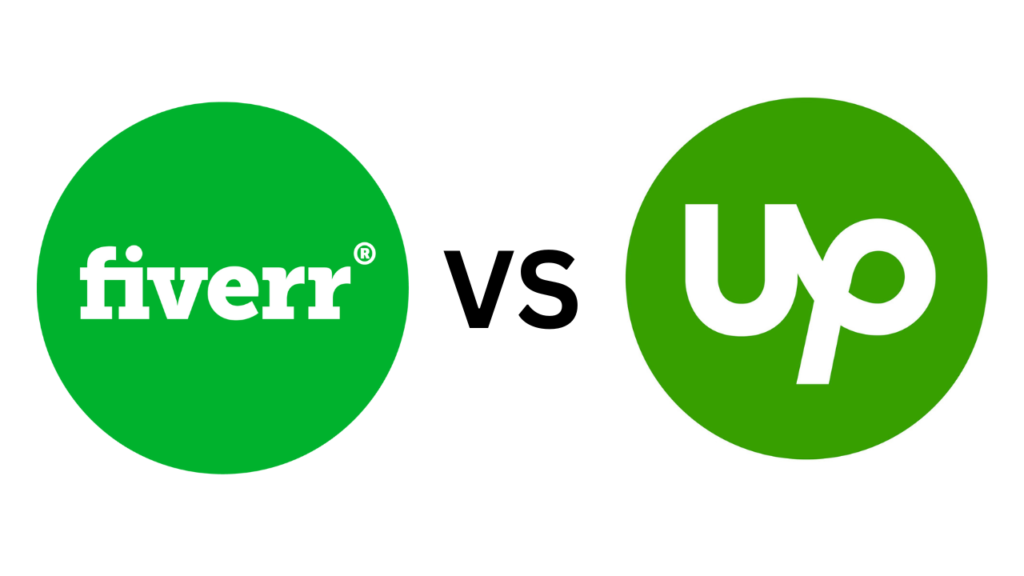Fiverr and Upwork: A Comprehensive Comparison. In the realm of online freelancing, Fiverr and Upwork have emerged as two prominent platforms that connect businesses with skilled professionals.
Both platforms offer a vast array of services, but they have distinct differences in terms of their features, user base, and pricing models.
In this article, we will delve into a comprehensive comparison of Fiverr and Upwork, exploring their strengths, weaknesses, and suitability for various types of projects.
Whether you’re a freelancer looking for work or a business seeking to outsource tasks, this article will help you make an informed decision.
-
Overview of Fiverr and Upwork
Fiverr and Upwork are online platforms that facilitate the connection between freelancers and clients. They serve as marketplaces for a wide range of services, including graphic design, content writing, programming, marketing, and more.

While both platforms share a common goal of connecting talent with projects, they differ in their approach and the overall experience they provide.
-
User Base and Talent Pool
Fiverr boasts a massive user base with millions of freelancers offering their services. The platform attracts a diverse pool of creative professionals, making it an excellent choice for creative projects and specialized services.
On the other hand, Upwork offers a larger talent pool, with millions of registered freelancers covering various fields, including software development, consulting, virtual assistance, and more.
-
Project Types and Scope
Fiverr primarily focuses on small to medium-sized projects, often with fixed prices. It is known for its “gig” system, where freelancers offer specific services at set rates. This structure makes Fiverr ideal for businesses seeking quick and affordable solutions for their projects. Also, read this how to boost orders on fiverr
Upwork, on the other hand, caters to a broader spectrum of project sizes and complexity. It allows for both fixed-price and hourly contracts, making it suitable for long-term collaborations and larger-scale endeavors.
-
Pricing and Payment
Fiverr operates on a gig-based pricing model, where freelancers set their rates for specific services. The platform charges a processing fee for each transaction, typically around 20% of the service cost.
Upwork offers more flexibility, allowing freelancers to set hourly rates or negotiate fixed prices with clients. Upwork charges a sliding fee based on the freelancer’s earnings, ranging from 5% to 20% depending on the total billings with a specific client.
-
Platform Usability and Interface
Fiverr offers a user-friendly and visually appealing interface. The platform is designed to facilitate seamless navigation and communication between freelancers and clients.
Upwork provides a robust and comprehensive platform with advanced features, including time tracking, collaboration tools, and project management capabilities.
While it may have a steeper learning curve, Upwork’s interface is well-suited for complex projects and long-term collaborations.
-
Customer Support and Dispute Resolution
Fiverr offers reliable customer support through its Help Center, where users can find answers to common questions or submit support tickets. The platform also has a resolution center to handle disputes between freelancers and clients.
Upwork provides dedicated support through its customer service team, offering assistance throughout the project lifecycle. The platform’s dispute resolution process is well-regulated, providing fair solutions in case conflicts arise.
-
Pros and Cons of Fiverr
Pros:
- Vast talent pool for creative services
- Affordable pricing for small projects
- Easy-to-use platform with a simple gig-based system
Cons:
- Limited suitability for complex or long-term projects
- Quality variations among freelancers
- Higher transaction fees compared to other platforms
-
Pros and Cons of Upwork
Pros:
- Extensive talent pool across various fields
- Suitable for both small and large-scale projects
- Advanced features for project management and collaboration
Cons:
- Steeper learning curve for new users
- Higher competition for projects
- Platform fees can be substantial for high-earning freelancers
-
Which Platform is Right for You?
Choosing between Fiverr and Upwork depends on the nature of your project and your specific requirements. If you’re looking for quick, affordable solutions for creative or specialized services, Fiverr may be the ideal choice.
On the other hand, if you require a broader talent pool and more flexibility for complex or long-term projects, Upwork provides a comprehensive platform to fulfill those needs. Consider your project’s scope, budget, and desired level of collaboration when making a decision.
-
Conclusion
In the battle of Fiverr and Upwork, both platforms have their strengths and weaknesses. Fiverr excels in its simplicity, affordability, and diverse pool of creative professionals. It caters to small to medium-sized projects and offers a user-friendly interface.
Upwork, on the other hand, provides a comprehensive platform with advanced features, a broader talent pool, and more flexibility in terms of project types and sizes.
FAQs
-
Can I use both Fiverr and Upwork simultaneously?
Yes, many freelancers and businesses use both platforms to maximize their opportunities and reach a wider client or talent base.
-
Are there any upfront costs to join Fiverr or Upwork?
Both platforms allow users to join for free. However, they charge fees on transactions and earnings made through the platforms.
-
Which platform offers better customer support?
While Fiverr and Upwork both provide customer support, Upwork offers more extensive support throughout the project lifecycle.
-
Are there any hidden costs on Fiverr and Upwork?
Both platforms are transparent about their pricing structures. However, it’s essential to review the fee schedules and terms of service to ensure you have a clear understanding of the costs involved.
-
Can I switch from one platform to another if I’m not satisfied?
Yes, freelancers and clients have the flexibility to switch between platforms based on their needs and preferences. However, it’s important to consider the impact on your ongoing projects and client relationships.

